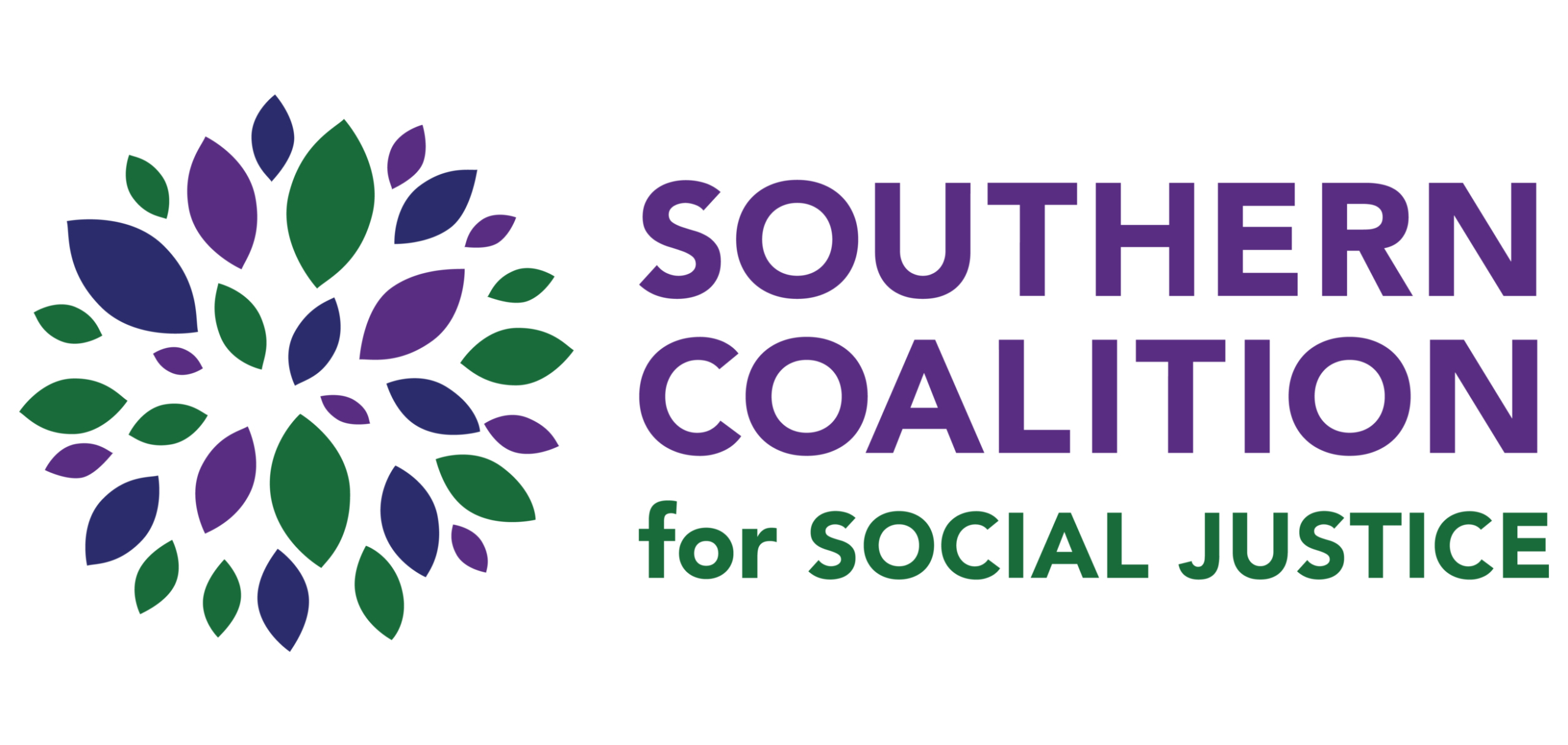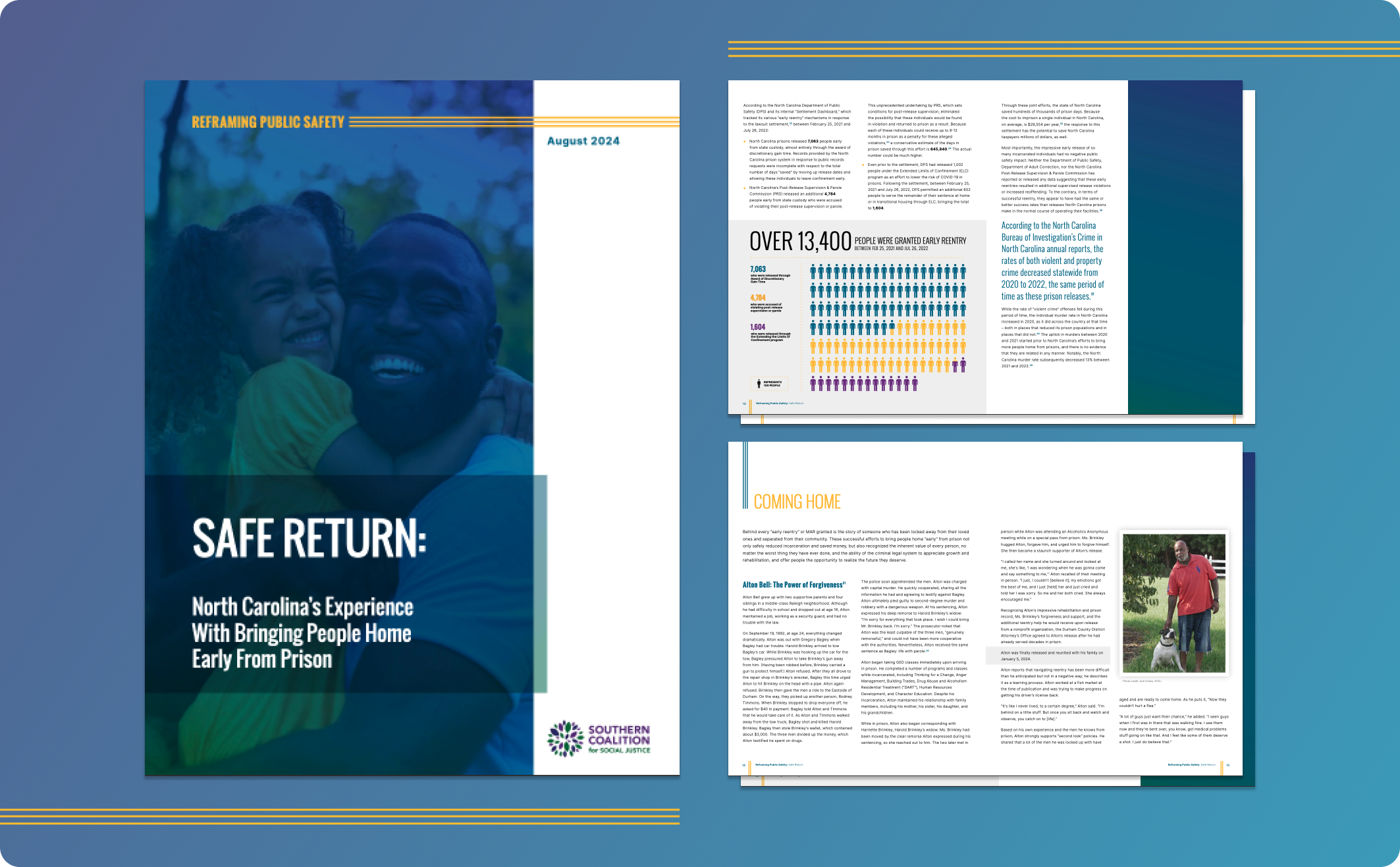During the summer, SCSJ hosts several interns from undergraduate and law school programs around the state and beyond. Here are the reflections of one of our undergraduate interns, Michael Sloan.
My experience working with the Southern Coalition for Social Justice (SCSJ) this summer has truly been a wonderful opportunity. When my Constitutional Law professor at Howard University discovered that I was from Durham, North Carolina and was seeking an internship in the area he immediately referred me to SCSJ, where he knew Executive Director Anita Earls.
Having been a life-long resident of Durham, it came as a surprise to me that I hadn’t previously heard of the Southern Coalition. Upon researching the organization, I was very impressed with their work and felt that an internship where I had the opportunity to work alongside SCSJ’s staff attorneys would prove fruitful and educational.
As an undergraduate student and aspiring attorney, I had never considered working for a non-profit organization as a viable career pathway for someone in my field—until now. To be quite honest, I can’t even say I knew a great deal about the inner workings of a non-profit. Over the past couple of months, I have ascertained a great understanding as to how a non-profit functions. It has broadened my scope, opening my eyes the many career pathways there are in the field of law.
I primarily work under the tutelage of staff attorney Allison Riggs, who does a lot of work with voting rights and redistricting cases. Coming into the internship, I had a limited understanding of the role redistricting plays in our American political structure. It is an integral aspect of American politics and arguably one of the most self-interested and partisan as well. The drawing of legislative districts has a direct affect on who gets elected in local and presidential elections, so it’s no wonder that politicians and elected officials fight tooth-and-nail over district lines.
On a day-to-day basis, my tasks usually include researching information and collating data that can be used to determine if a law or political decision has disproportionately impacted any one group of people—primarily minorities. One of my most enriching experiences as an intern was attending a county meeting in North Carolina where elected officials and community leaders had called upon SCSJ to develop a redistricting plan that gave them a fair chance of getting a minority district drawn. I saw these officials and leaders going back and forth about the politics of drawing district lines and the affect that a poor decision could potentially have on their community. That experience added color, life, and meaning to the standard office work I see on a daily basis. Its one thing to sit behind a desk looking up information and statistics, but it’s quite another experiencing how that research plays out in the lives of real people.
As one of the only undergraduate interns, I have also benefited from working alongside law school interns. They have given me great insight into what I can expect from law school and how I should prepare. I believe am abreast of the challenges law school shall surely present; however, I feel resolve in knowing that I am better equipped with the tools necessary to be most successful.
As the summer comes to a close, I can really appreciate the edifying experience I have had here at SCSJ. While the organization maintains a professional environment, it is not in the least bit stuffy. I have enjoyed the relaxed and familial atmosphere of the office. As a non-profit still in its infancy, the staff can be classified a small, close-knit group of individuals who value a warm work environment. Going forward, I wish SCSJ much success as it continues to grow and build a name for itself across the nation. With each successful case, be it on behalf of one or many, SCSJ is leaving a lasting imprint on the community it has helped. It is the Southern Coalition for Social Justice and like-minded organizations that are the true do-gooders of our communities. They have shown me, above all else, that real honor in this line of work comes from fighting on behalf those without means to fight for themselves. Put simply, SCSJ gets it right.



